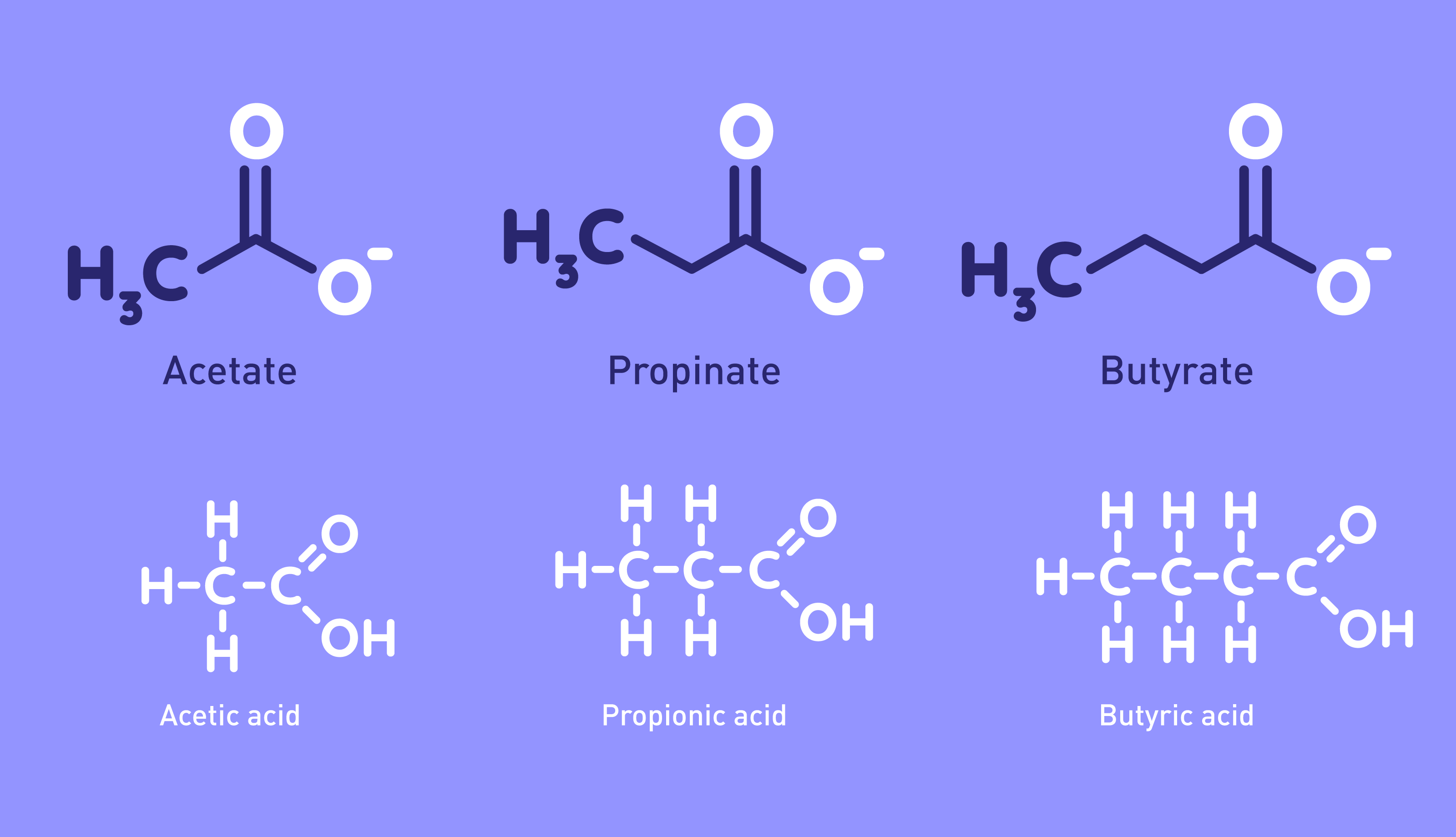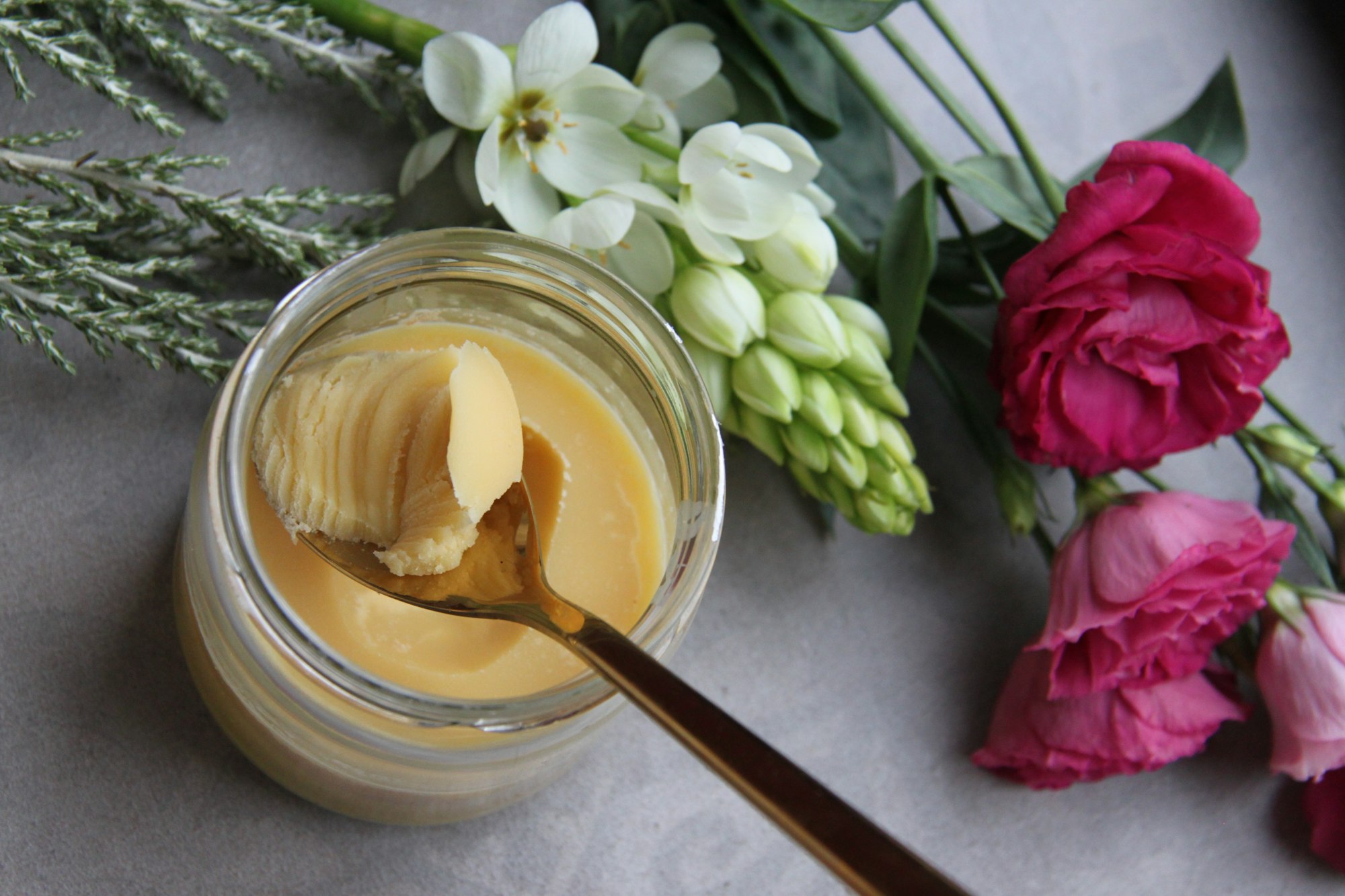Here’s the lowdown on butyrate, why you need it, and a butyrate foods list to support your digestive and overall health.
Butyrate comes from the Latin butyrum, meaning butter. Why butter? Well, butter is the most common butyrate food source. However, it’s also not the best way to increase butyrate in your body, so don’t just go slathering your toast in butter, because it won’t work.
Butyrate is a short-chain fatty acid made by the health-promoting bacteria in your gut, and it has some mighty powerful effects on the human gut and wider health. So rather than eating foods that contain butyrate, we’re going to explain what foods you need to eat to help your butyrate producing bacteria thrive.
Table of contents
- What is microbiome?
- What is butyrate?
- Why is butyrate important?
- Foods that increase butyrate production
- Diets and foods that reduce butyrate
- Summary
If you want to increase the butyrate production of your gut microbes, you need dietary fibre (not butter). In this article, we’re going to recap what the gut microbiome is, what butyrate is, and the butyrate foods you need to eat to make more of it. Oh, and we’ll look at its wide range of benefits, too.
What is the gut microbiome?

As much as you may treat it like it is, your body is not just your own. Within you (and even on you, think skin) are trillions of microorganisms who call your body their home. Many areas of your body have bacterial, viral, and fungal inhabitants, but the gut microbiome is the largest and most important.
The gut microbiome consists of all the microbes and their genes in the colon. There’s approximately 1,000 different bacterial species living in your intestine. Many of them are essential for your health, while a few can contribute to the development of disease.
In other words, the gut microbiome has a major impact on human health. It carries out essential functions including producing magic metabolites, like short-chain fatty acids and vitamins, which strengthen the gut barrier and promote a healthy immune system.

☝FACT☝Discover what butyrate foods you need for your beneficial bacteria with the Atlas Microbiome Test.
What is butyrate?
☝FACT☝Hydrocortisone butyrate is a corticosteroid that is used to treat skin irritation. It should never be ingested.
Butyrate benefits for health

Despite being the least abundant short-chain fatty acid (the others are acetate and propionate), butyrate has numerous health benefits. And, these advantages aren’t just for your gut because butyrate can:
- help stabilise blood sugar levels
- protect your brain from diseases like Alzheimer’s and Parkinson’s
- protect against cancer
- prevent obesity
One of the major benefits of butyrate for the gut is that it is the main source of fuel for the cells lining the colon, called colonocytes. Without it, these cells simply wouldn’t survive and the intestinal environment within which gut microbes thrive, wouldn’t exist.
That’s because colonocytes, when functioning effectively, keep the gut oxygen-free, providing the perfect environment for your gut microbes to flourish. Butyrate also regulates the natural movement of food through the gut and boosts blood flow to the colon. Basically, your gut needs butyrate!
It could even be beneficial for tackling obesity and type II diabetes. That’s because butyrate increases the release of gut hormones involved in the regulation of blood sugar levels. So, increasing the production of butyrate in the colon means blood sugar levels are better managed and the risk of obesity is reduced.
What does all this mean for health? Well, because butyrate is produced when your gut microbes transform the dietary fibre you eat into these beautifully beneficial compounds, such as butyrate, your diet could be key to preventing chronic disease.
☝FACT☝Ethyl butyrate and methyl butyrate are fruity flavouring and scent agents.
Foods with butyrate
So, now that you know the health kicks butyrate could give you, we bet your itching to find out how you can increase butyrate in the gut. As we mentioned before, you don’t need to eat foods high in butyrate, you just need to eat foods that feed your gut bacteria. They’re called prebiotics.
A specific classification of bacteria, called Firmicutes, are especially renowned for being butyrate producing bacteria. You may have heard of some of them such as Faecalibacterium, Roseburia, and Eubacterium if you’ve taken an Atlas Biomed Microbiome Test.
Boosting butyrate production isn’t as simple as eating butyrate rich foods. The short-chain fatty acid can be absorbed in the stomach and small intestine, so if you eat butyrate, it wouldn’t travel to your colon where it supports your gut lining and keeps it intact. So, what foods have butyrate boosting powers?
Foods to increase butyrate
| almond | apple | barley |
| Chickpea (bengal gram) | garlic | kiwifruit |
| maize | oat and wheat bran | soy |
Remember, don’t believe the hype about eating more butter or investing in a butyrate supplement like sodium butyrate. Instead, research shows that consuming prebiotics is an effective and safe way to increase the abundance of butyrate-producing bacteria. as well as other beneficial species. What’s more, improving your gut microbiome with food and increasing butyrate production supports good digestive health.
☝TIP☝A diet rich in plant foods will help your gut butyrate levels while increasing your daily intake of fiber and providing you with healthful antioxidants.
Diets and foods that reduce butyrate

Butyrate can be increased by eating the right foods, but following the wrong type of diet can have the opposite effect. Fad diets are everywhere, and although many claim to have some benefits, they can also be detrimental to your gut microbiome and its ability to make butyrate.
The long and short of it is, (the correct) carbs are not your enemy, and you can increase the abundance of butyrate producers and, in turn, the metabolite itself by upping your intake of veg, fruit, and wholegrains (hint: the table above).
☝TIP☝If you significantly lower your intake of good carbs, like fruit, veg, legumes, and whole grains, you run the risk of depleting the populations of butyrate producing bacteria.
Summary
Butyrate is a short-chain fatty acid produced by your gut bacteria when they ferment (break down) dietary fibre which the human body is incapable of digesting. In return, butyrate has several health benefits which support your gut, brain, and even reduce the risk of disease.
There’s speculation online about boosting your butyrate levels with various butyrate food sources like butter or butyrate supplements. Instead of googling “butyrate amazon” or “what foods contain butyrate”, the best way to ensure you have plenty of this metabolite is to eat a diet high in fibre and rich in prebiotics.
And remember that eating the wrong type of food can reduce the butyrate-producing bacterial species and butyrate levels. Typically, high protein, high fat, and low carb diets have negative effects. So, before following one, think hard about whether it’s worth it.
- Berni Canani, R et al. Potential beneficial effects of butyrate in intestinal and extraintestinal diseases, 2011
- Cani, P, D. Human gut microbiome: hopes, threats and promises, 2018
- Cantu-Jungles, T,M et al. Potential of Prebiotic Butyrogenic Fibers in Parkinson’s Disease, 2019
- Clemente, J, C et al. The impact of the gut microbiota on human health: an integrative view, 2012
- Duncan, S, H et al. Reduced Dietary Intake of Carbohydrates by Obese Subjects Results in Decreased Concentrations of Butyrate and Butyrate-Producing Bacteria in Feces, 2016
- Hamer, H, M et al. Review article: the role of butyrate on colonic function, 2007
- Liu, H et al. Butyrate: A double-edged sword for health?, 2018
- Rivière, A et al. Bifidobacteria and Butyrate-Producing Colon Bacteria: Importance and Strategies for Their Stimulation in the Human Gut, 2016





















